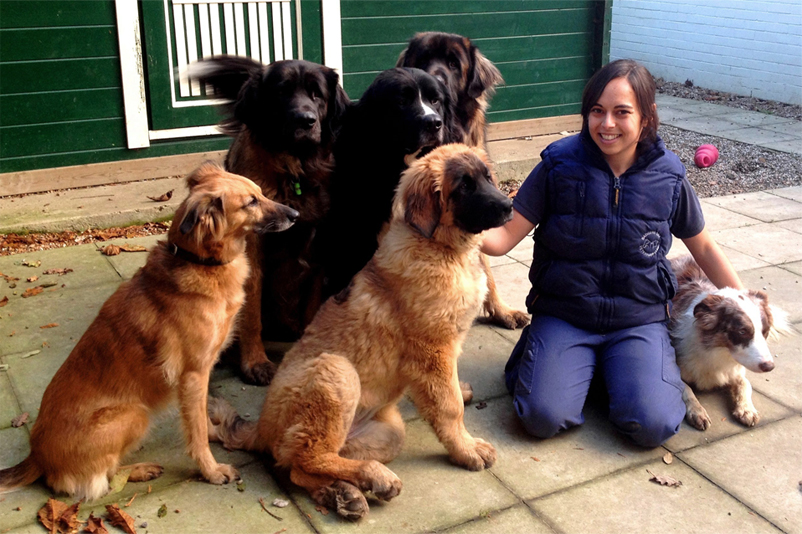We recommend that all dogs, cats and rabbits be vaccinated throughout their life. Vaccination hugely reduces the chance of disease and if disease does arise it decreases the severity of clinical signs. It also allows the vet to give your pet a full health check and alert you to any health issues.
Cats:
 We recommend all cats are vaccinated against feline flu and enteritis and also feline leukaemia virus.
We recommend all cats are vaccinated against feline flu and enteritis and also feline leukaemia virus.
Kittens can be vaccinated from 9 weeks of age with a second vaccination at 12 weeks. Annual boosters are required for lifelong protection.
Dogs:
 The diseases we recommend all dogs are vaccinated against are canine distemper, infectious canine hepatitis, parvovirus and leptospirosis.
The diseases we recommend all dogs are vaccinated against are canine distemper, infectious canine hepatitis, parvovirus and leptospirosis.
Puppies require vaccinating from 6 weeks of age with either 2 or 3 vaccinations depending on age and if the breeder has vaccinated them. Annual boosters are required for lifelong protection.
Most boarding kennels will require these and some may also request a kennel cough vaccine which is also advisable if your dog is very social.
For more information on canine vaccinations and the diseases we protect against, please see below.
Rabbits:
 We strongly suggest that all rabbits are vaccinated against myxomatosis and VHD (Viral haemmorhagic disease).
We strongly suggest that all rabbits are vaccinated against myxomatosis and VHD (Viral haemmorhagic disease).
There is a combined vaccination for myxamatosis and VHD that is annual for the life of the rabbit. This covers both strains of VHD.
Further information on vaccination and the diseases we vaccinate against:
DOG VACCINATIONS
‘DHP’ is given to adult dogs every 3 years and protects against the following diseases:
- Distemper virus
Distemper is a serious disease caused by a very contagious virus that can attack the respiratory, gastrointestinal and nervous system of dogs and puppies, however can be prevented by vaccination.
Dogs that have not been vaccinated are the most vulnerable to becoming infected. Infection occurs through exposure to another infected dog or wild animal, as well as through shared food and water bowls. There is unfortunately no cure for this infection, which can be fatal, and treatment is supportive only which includes administration of intravenous fluids and prevention of secondary infection. Vaccination is crucial in preventing canine distemper.
- Canine adenoviruses
These viruses (CAV-1 and CAV-2) cause liver disease and respiratory disease respectively. Dogs can get infected via contact with the urine, saliva or faeces of infected dogs. The symptoms range from mild to potentially fatal, particularly in very young dogs. The damaged caused to the liver by CAV-1 can result in clotting problems, which can cause internal bleeding. Treatment consists mainly of supportive care, as this disease does not respond to antibiotics, and sadly many cases do not respond to treatment. The best way to protect against this disease is vaccination.
- Parvovirus
Many people have heard of ‘parvo’. This virus kills the cells on the surface of the gut, causing severe diarrhoea. It also kills immune system cells which leaves the dog vulnerable to other infections.
Puppies can become infected from contact with infected faeces or contamination in the environment. If they are not vaccinated, they can rapidly become dehydrated and very sick. Severe cases can develop septicaemia and sadly many of these cases are fatal.
Unlike distemper or infectious hepatitis which, thanks to widespread vaccination, are not seen commonly now, we do see cases of parvovirus multiple times a year, some of which are fatal. For this reason we strongly recommend all dogs are vaccinated, especially puppies.
Leptospirosis vaccine
L4 is a vaccine that we recommend is given to dogs every year to protect them against leptospirosis. This disease is called by a type of bacteria called a spirochaete. It is similar to a condition in people known as Weil’s disease. It is spread in rats’ urine and from infected cattle, so dogs are most at risk if they are walked on farms, in woodlands, near waterways or other places where they may come into contact with rats.
Infection in unvaccinated dogs can cause liver or kidney failure, or less commonly respiratory disease or eye disease. It is very challenging and expensive to treat and infected dogs are often never completely cured. We have seen cases of lepto in our area which is why we strongly recommend vaccination.

